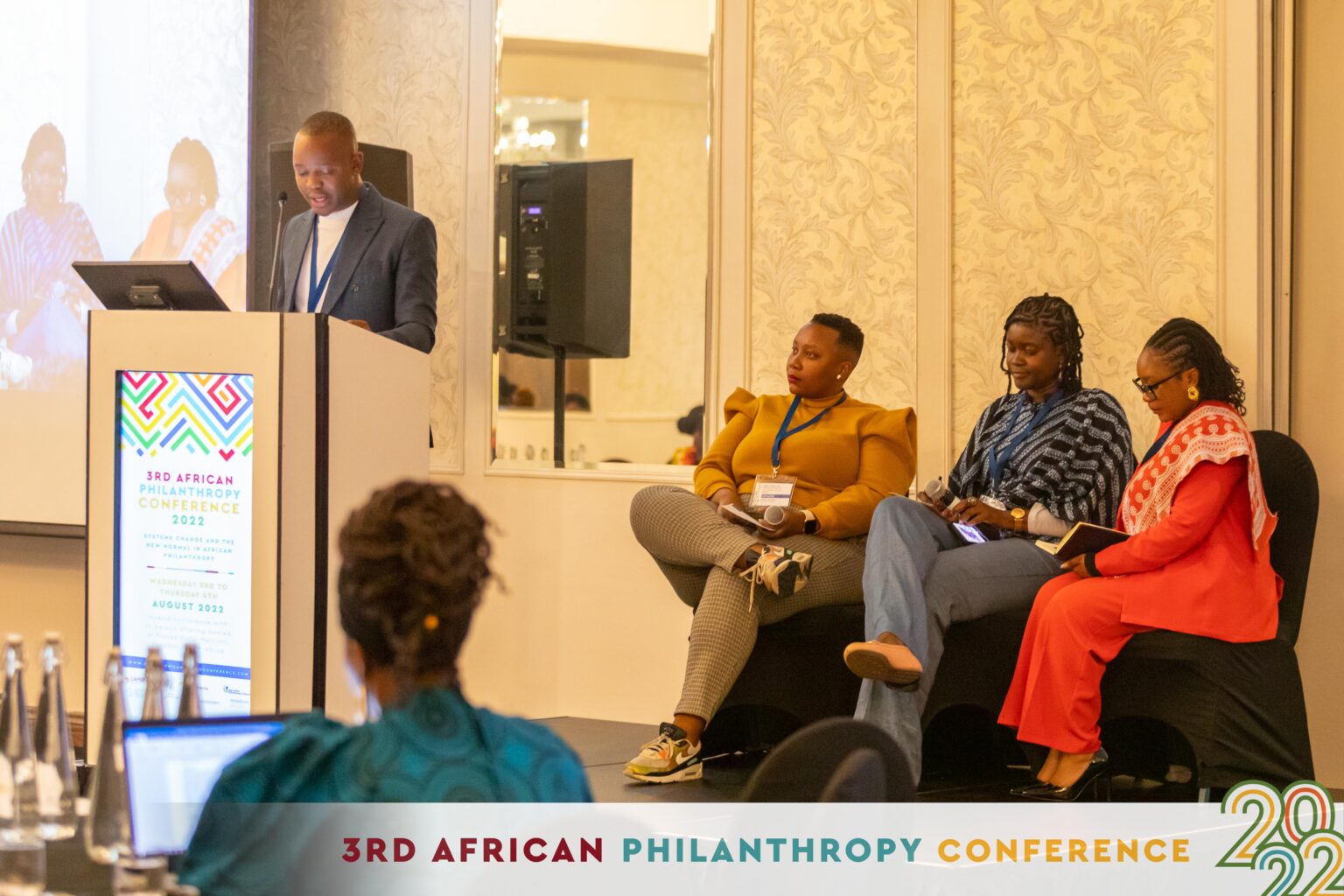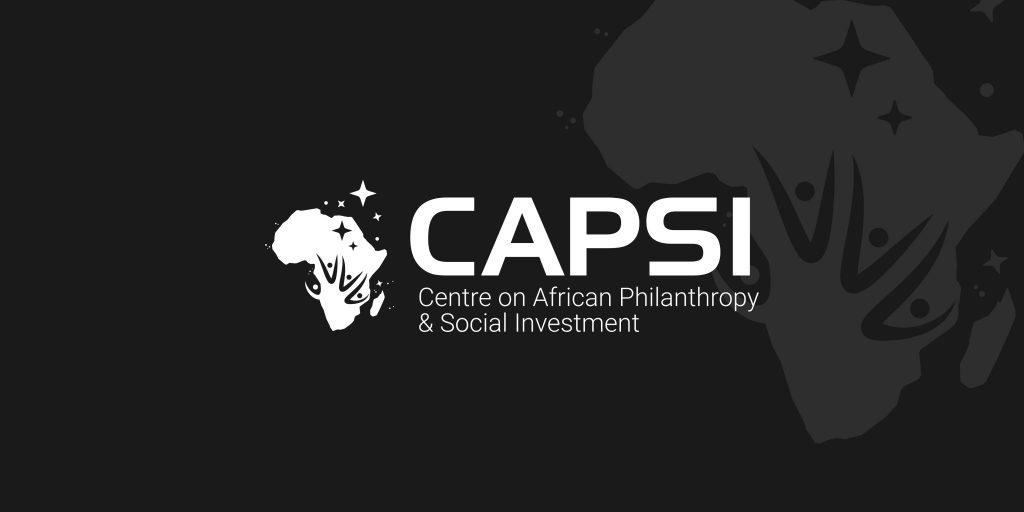
Call for Abstracts
We invite researchers and academics to submit abstracts and research papers to be considered for the 2nd African Philanthropy Academic Conference which will take place in Dakar, Senegal on Monday 31 July to Tuesday 1 August 2023.
Context
Global events such as the war in Ukraine, slowing economies, the persistence of COVID-19, and rising nationalism continue to challenge the world order. Consequently, sectors like philanthropy have been forced to undergo a transformation challenging the established order of the ecosystem. These shifts, coupled with the myriad of issues African philanthropy is currently grappling with such as localisation, developing a south-south approach, and inward-looking (harnessing the local capacity) for resource mobilisation need a dedicated platform for deliberation. The events occasioned by the COVID-19 pandemic witnessed African philanthropy responding in unprecedented ways. Technology and innovative ways of giving became ubiquitous almost overnight. However, clear disparities were also observed as some philanthropic institutions flourished while others were totally decimated and may not resurface.
Other urgent issues the sector is facing head-on include climate change, climate advocacy, climate change adaption vs climate change mitigation, governance, technology, and many other new fronts. These issues have the potential to refocus and pivot how philanthropy is practiced, lived, and experienced especially in Africa. They are simply the inflection points that will continue to shape the future of the ecosystem in Africa.
At this inflection moment, evidence is suggesting that philanthropy is gradually moving away from a relationship-driven to a value-driven system – there is a realisation for sustainability. This is changing the logic of the philanthropic field and has the potential to create an increasingly efficient social capital over time. Given the magnitude of social and environmental needs, a new way of thinking must be devised for the sector to truly realise its potential and impact. Although there has hardly been a broad consensus on efficiency and effectiveness, systematic shifts and systems thinking are likely to enable philanthropies to achieve greater impact at this inflection point.
The 2nd African Philanthropy Academic Conference will be charged with the responsibility of unpacking some of these questions and potentially devising the future for philanthropy, especially in Africa. This question and the subthemes will be used to guide and reflect on the inflection points depicted.
Thematic areas
We are pleased to invite scholars and practitioners to submit abstracts for the 2nd African Philanthropy Academic Conference. This conference aims to explore the current inflection points in philanthropy and the urgent issues that the sector is facing. We are seeking abstracts that address one or more of the following thematic areas:
- Philanthropy and Health
- Philanthropy and Climate Change
- Philanthropy and Emerging Technologies
- Emerging trends in Philanthropy
- Social Media and philanthropy
- Philanthropy, Social Investment, and the Sustainable Development Goals
- Philanthropy and Disaster Management
- Philanthropy and Systems Change
- Women, Youth, and Philanthropy
- Decolonising Philanthropy
- Religion and Philanthropy
- Stakeholder maximisation
- Public Policy and Philanthropy
Additional context of each thematic area is available below. We welcome abstracts from scholars, practitioners, and other stakeholders working in philanthropy in Africa. Submissions should be no longer than 300 words and should clearly outline the objectives, methods, and expected outcomes of the proposed paper.
Submission information
- Applicants should submit an abstract of 300 words in a Word document format
- We welcome abstracts in English and other African languages
- Submitted Abstracts must contain the following
- Full title
- Names of all the authors
- Affiliations of each author
- Abstract of the paper
- 3 – 6 keywords of the paper
- Acknowledgements or disclosure notices (if any)
- A maximum of two submissions will be considered per author
- Only the abstracts will be published in the conference proceedings
Important information
- A registration of USD$300 is to be paid on acceptance of the abstracts. This will give the author access to attend the 4th African Philanthropy Conference.
- Visa, travel, and accommodation is for the cost of the author of the accepted abstract
For additional information
Wycliffe Nduga Ouma | Email: wycliffe.ouma@wits.ac.za
Context of Thematic Areas
- Philanthropy and Health: This theme explores the intersection of philanthropy and health. It includes topics such as the role of philanthropy in improving access to healthcare, blood donation as a form of giving, supporting research and development, and addressing health inequities.
- Philanthropy and Climate Change: This theme focuses on the role of philanthropy in addressing climate change. It includes topics such as the support of climate change mitigation and adaptation efforts, the use of innovative technologies, and the development of sustainable practices.
- Philanthropy and Emerging Technologies: This theme explores the intersection of philanthropy and emerging technologies, such as blockchain, artificial intelligence, and machine learning. It includes topics such as the potential impact of these technologies on philanthropy, the ethical considerations, and the role of philanthropy in driving innovation.
- Emerging Trends in Philanthropy: This theme examines the current and emerging trends in philanthropy, including impact investing, social entrepreneurship, and corporate social responsibility. It includes topics such as the impact of these trends on the philanthropic landscape, best practices, and the potential for collaboration.
- Social Media and Philanthropy: This theme explores the role of social media in philanthropy. It includes topics such as the use of social media for fundraising and awareness-raising, the ethical considerations, and the potential for social media to drive innovation in philanthropy.
- Philanthropy, Social Investment, and the Sustainable Development Goals: This theme focuses on the role of philanthropy and social investment in achieving the United Nations Sustainable Development Goals. It includes topics such as the potential for philanthropy to drive social change, best practices for social investment, and the importance of measuring impact.
- Philanthropy and Disaster Management: This theme focuses on the role of philanthropy in disaster management. It includes topics such as the support of disaster relief efforts, disaster risk reduction, and the potential for technology to improve disaster management.
- Philanthropy and Systems Change: This theme examines the potential for philanthropy to drive systems change, including addressing issues such as capitalism, democracy, and systemic racism. It includes topics such as the role of philanthropy in driving systems change, best practices for systems change philanthropy, and ethical considerations.
- Women, Youth, and Philanthropy: This theme focuses on the important role of women and youth in philanthropy. It includes topics such as the unique perspectives and experiences of women and youth in philanthropy, the potential for women and youth to drive social change, and best practices for engaging women and youth in philanthropy.
- Decolonising Philanthropy: This theme explores the impact of colonialism on philanthropy in Africa and the potential for decolonisation to drive change. It includes topics such as the role of philanthropy in addressing historical injustices, best practices for decolonising philanthropy, and the ethical considerations.
- Religion and Philanthropy: This theme focuses on the role of religion in philanthropy in Africa. It includes topics such as the unique perspectives and experiences of religious organizations in philanthropy, the potential for religious organizations to drive social change, and the ethical considerations.
- Stakeholder maximization: This theme focuses on the role of businesses in philanthropy and explores how they can engage all relevant stakeholders to maximize their impact and create shared value for communities. Papers in this theme are expected to examine ways in which businesses can effectively engage with local communities, create sustainable development through philanthropic initiatives, and balance competing stakeholder interests.
- Public Policy and Philanthropy: This theme examines the intersection of philanthropy and public policy. It includes topics such as the potential for philanthropy to drive public policy change, the role of government in supporting philanthropy, and ethical considerations.





